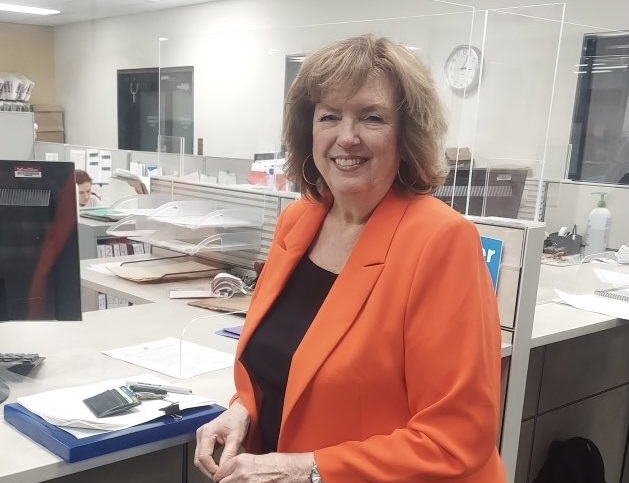Toronto still in discussions with federal government over drug decriminalization
Posted February 6, 2023 12:50 pm.
As B.C. has officially decriminalized small amounts of drugs, Toronto continues to wait for their own exemption from Health Canada in hopes it will help curb the opioid crisis in the city.
As of last Tuesday, those 18 years and older, found with up to two and a half grams of drugs for personal use, including opioids, MDMA and cocaine will not be arrested or charged.
Associate Medical Officer of Health Dr. Eileen De Villa tells CityNews opioid overdose deaths keep increasing each year. In 2021, there were 591 deaths, an increase from 296 in 2020. “This is a significant loss of life, and these are preventable deaths.”
The data isn’t yet complete for 2022, but in the first three quarters of the year, there were 350 confirmed deaths and another 28 probable deaths.
“Recognizing that drug use is a health issue and treating it as a health issue, I think as a key step towards improving the health of those who use drugs and improving health in our community at large,” added Dr. De Villa.
Toronto Public Health applied for an exemption to decriminalize the possession of small amounts of drugs in January of 2022 and is still engaged in ongoing discussions with Health Canada.
RELATED STORY: Decriminalization begins in B.C. as coroners service releases overdose death data
The federal government said they are working in close partnership with Toronto on their exemption request to ensure “both public health and public safety considerations are included.”
The exemption calls for the decriminalization of personal possession of small amounts of controlled substances. As Dr. De Villa points out, their exemption would need to be considered differently because it is a municipality, not a province.
“We have to think about what that means for jurisdictions nearby. And certainly, that’s one of the items that’s under discussion, as we discussed with the federal government, what the specific model would look like,” she said.
Like Vancouver, Dr. De Villa said they know this is just one tool to fight the opioid crisis. “We do need to make sure that there are adequate mental health supports and adequate medical supports, and adequate social supports in order to be successful, but it is an important tool that we have in our toolkit right now.”
And criminalizing drug use just acts as a barrier for people to seek out these necessary supports. “Having better access to harm reduction, better access to treatment opportunities, better access to supportive, affordable and sustainable housing,” said Dr. De Villa.
“These are the kinds of elements that can actually help in concert with decriminalization to reduce the harms associated with drug use, make the lives of individuals who use drugs in our community better, and frankly, make all of us as a community healthier.”
RELATED STORY: Drug checking, harm reduction sites needed to combat spike in opioid overdoses in Toronto
One harm reduction advocate who is from Toronto, but now lives in Vancouver, Ari Daniel, said there has still been a startling number of overdose deaths in Vancouver and it won’t take just decriminalization to change that.
Vancouver has implemented a program called the Four Pillars Drug Strategy that focuses on treating drug addiction as a health issue rather than a criminal justice issue.
“Overdose numbers are still high, like I said, with these programs in place and they will continue to be high for a little bit because it’s important to remember that the opioid epidemic and addiction in general is a very complex social health and economic issue that isn’t just going to be solved with decriminalization,” said Daniel.
Daniel pointed to addressing the root causes of addiction as one of the most important things a municipality can do, including “systemic issues such as poverty, lack of access to health care, and lack of support for individuals who suffer from addiction.”
“These are the kinds of things that are absolutely crucial to the experience of good health,” explained Dr. De Villa. “And that applies whether we’re talking about people who use drugs, people who don’t use drugs, this is actually fundamental to all of us and our experience of health.”
While B.C. declared a public health emergency when it came to their drug poisoning crisis, Dr. De Villa said that is not within the power of a local public health unit to call one.
“There’s no question that what we are experiencing is a drug poisoning crisis … With respect to the formal declaration of an emergency, that’s not within the power of local public health, but certainly calling attention to the situation and bringing forward potential solutions is within the scope of public health.”
Daniel added one of the best ways to break the stigma around drug use and addiction is to keep talking about it.
“Addiction does not discriminate. It can affect anyone regardless of race, gender, or socioeconomic status,” shared Daniel. “So, a comprehensive and compassionate approach to addressing drug addiction that addresses both the supply and demand and prioritizes support understanding and access to evidence-based treatment is essential.”
The final decision to grant an exemption will be in the hands of the federal government, but it’s unclear exactly when that decision will come down.










